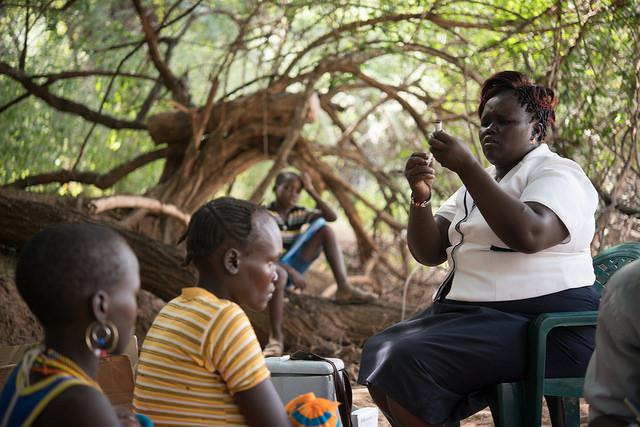Researcher of the Month: Evalyne Aseyo

Credit: Allan Gichigi/MCSP
Our Researcher of the Month for April is Evalyne Aseyo, PhD student and researcher on the Safe Start project at GLUK. Evalyne recently travelled to London to take the Tropical Environmental Health module offered by LSHTM. Here, she tells us about her work on community health volunteers, and what she learnt from her studies.
What is your background?
My background is in community development and psychology – that was my Bachelor’s degree for my Masters I studied community health and development. I then joined the Department of Health Promotion at GLUK. Afterwards, I became involved in the SHARE project due to my background working with community health volunteers.
What is your PhD subject?
My PhD is looking at the capacity of community health volunteers (CHVs) in WASH. Specifically, it will be on the performance of CHVs in delivering infant food hygiene interventions. I’m working on the proposal so it’s still in progress. I was involved in the Safe Start formative research, led by Robert Dreibelbis, and explored the capacity of CHVs in food hygiene interventions. I’ve recently submitted a paper looking at the CHV model and comparing it to another Ministry of Health model. I hope to get very interesting findings from this.
You've recently completed the Tropical Environmental Health module at LSHTM. How did you find this course?
The Tropical Environmental Health course was excellent for me. I have been involved in WASH projects, but had not had specific training in WASH. The course has answered my questions, exposed me to new ideas and stretched my thinking. I’ve learnt about WASH issues that I previously didn’t consider as issues, just a way of life. But now I realise these are important issues it’s prompted me to want to do more work in the field of WASH.
What did you enjoy learning about most through this course?
I particularly enjoyed learning about behaviour change - about applying and understanding it more. I had read theories, but it’s different interacting with lecturers. It’s helped me to link ideas together. I’ve gained knowledge and skills, about what behaviour change is about, and how to conduct interviews.
